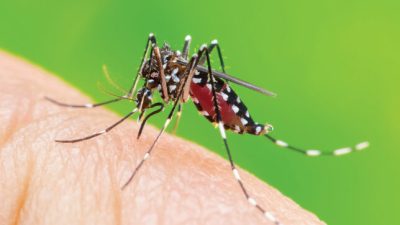Genetically Engineered Mosquito Experiment in California’s Central Valley Halted
Biotech corporation withdraws permit request in a win for agricultural communities threatened by risky insect mass release

All Global Research articles can be read in 51 languages by activating the Translate Website button below the author’s name.
To receive Global Research’s Daily Newsletter (selected articles), click here.
Click the share button above to email/forward this article to your friends and colleagues. Follow us on Instagram and Twitter and subscribe to our Telegram Channel. Feel free to repost and share widely Global Research articles.
***
In a victory for environmentalists, scientists and vulnerable agricultural communities across California, the California Department of Pesticide Regulation (DPR) announced yesterday the withdrawal of a permit request for a mass release of experimental genetically engineered mosquitoes in the Central Valley.
The withdrawal of the biotech corporation Oxitec’s request halts the controversial proposed release of billions of genetically engineered insects. Scientists and other experts in the field have raised concerns about Oxitec’s proposal to release genetically engineered mosquitoes due to inadequate scientific review and lack of appropriate and relevant regulations, pressuring the company to disclose data critical to assessing potential public health and environmental impacts.
Oxitec applied in April 2022 for a research authorization permit to release genetically engineered mosquitoes in Tulare County. In separate letters to DPR earlier this year, scientists and legislators urged DPR to deny the Oxitec permit because of concerns about risks posed to human health, wildlife and vulnerable ecosystems, and the lack of regulations to control billions of genetically engineered mosquitoes released into an open-air environment.
“All Californians should be relieved that this permit request has been withdrawn for the foreseeable future,” said Dana Perls, senior program manager at Friends of the Earth. “Significant scientific research on genetically engineered mosquitoes is still needed to understand the potential public health and environmental threats associated with the release of this novel genetically engineered insect.”
Earlier this year, Assemblymember Laura Friedman (D-Glendale) stated in her office’s press release that “there are too many unknown factors when it comes to how (GE mosquitoes) could affect our biodiversity in the long run, including how this might influence populations of birds, bats, fish species, and other insects.”
“The withdrawal of Oxitec’s application is a victory for California residents and wild species,” said Rebecca Spector, west coast director at Center for Food Safety. “This withdrawal in in line with leaders from our state legislature who demanded a more comprehensive review of the impacts of these genetically engineered mosquitoes before the approval of this permit.”
“This is a significant opportunity for California’s state agencies to hit pause and craft meaningful regulations that fully comply with the California Environmental Quality Act (CEQA). We must do a full CEQA review of this proposal, and we need regulations governing the release of any genetically engineered animal in our state,” said Nan Wishner, founding board member of the California Environmental Health Initiative. “A full CEQA analysis requires thorough exploration of environmental harm and identification of less potentially harmful alternatives.”
“Genetically engineered mosquitoes are an environmental justice issue for Tulare County residents who should not be human experiments,” said Angel Garcia, co-director of the statewide coalition Californians for Pesticide Reform and Tulare County resident. “We are already impacted by some of the worst pollution problems in the state and deserve prior informed consent to being part of an open-air biopesticide experiment. Ahead of any future proposal for genetically engineered insects, DPR needs to have robust regulations in place that protect community members, and meaningful, inclusive public participation in any decision making.”
Before an unregistered pesticide can be field tested in the state, U.S. EPA would need to approve an experimental use permit ahead of any field release, and DPR would need to approve a research authorization application. With the withdrawal of the Oxitec application, there is no pending research authorization request for the study of genetically engineered mosquitoes in California.
*
Note to readers: Please click the share button above. Follow us on Instagram and Twitter and subscribe to our Telegram Channel. Feel free to repost and share widely Global Research articles.
Featured image is from Sustainable Pulse

